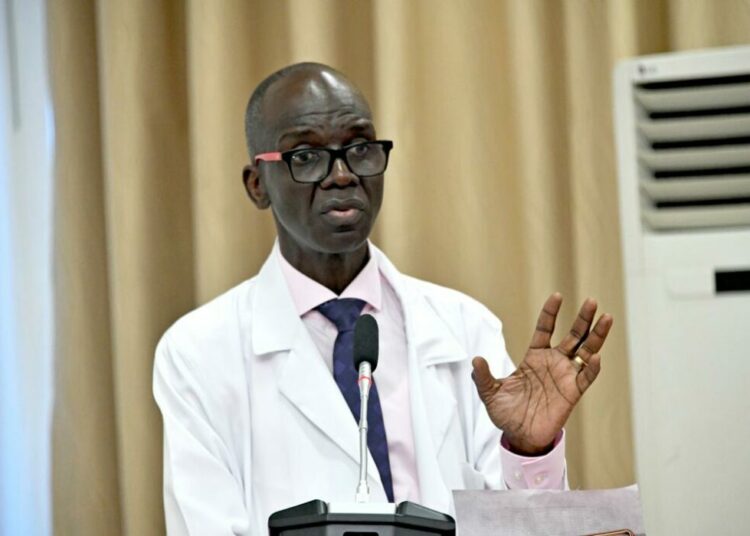The World Health Organisation (WHO) has called for stronger primary healthcare systems, increased investment, and access to affordable insulin to combat the growing diabetes crisis in Africa, where more than 24 million adults are currently living with the disease.
WHO Regional Director for Africa, Dr. Mohamed Janabi, who gave the warming in his message commemorating World Diabetes Day 2025, themed “Diabetes Across Life Stages” described the situation as “an unprecedented rise” driven by changing lifestyles, increasing rates of overweight and obesity, and inadequate access to preventive and primary health services.
“The scale and speed of this trend demand urgent and sustained action. Nearly half of those living with diabetes in Africa remain undiagnosed, silently facing escalating risks of severe complications, disability, and premature death,” Dr. Janabi stated.
According to WHO, diabetes-related complications, including damage to the heart, kidneys, eyes, and nerves, are exacting a heavy toll on individuals, families, and communities, and could soon overwhelm already fragile health systems if unchecked.
The global health body warned that the number of adults living with diabetes in the African region is projected to more than double to 60 million by 2050. Dr. Janabi cautioned that without immediate interventions, the rising burden would strain economies and reverse key development gains achieved over the years.
“Health systems must be resilient, adequately resourced, and organised to deliver continuous care, from prevention and early diagnosis to effective treatment and life-long support,” he said.
Highlighting regional progress, Dr. Janabi noted that African Member States in 2024 endorsed the Framework for the Implementation of the Global Diabetes Compact in Africa, reaffirming their commitment to equitable and comprehensive diabetes care.
He cited Ghana and Uganda as examples of countries integrating diabetes and cardiovascular services into primary healthcare, with WHO supporting them through the Package of Essential Noncommunicable Disease Interventions (WHO PEN) and PEN-Plus, now operational in 31 and 20 countries, respectively.
Dr. Janabi emphasised that diabetes can be prevented or better managed if detected early, even before it reaches the full-blown stage.
“We have a window of up to 15 years to control diabetes if detected at the insulin-resistance stage. Regular exercise, healthy eating, and appropriate medication can slow progression and make living with diabetes far more manageable,” he said.
This year’s World Diabetes Day campaign, he explained, underscores the need to empower people living with diabetes to live well at every stage of life:
For children, early diagnosis ensures healthy growth and learning, for women of reproductive age, proper management before and during pregnancy protects both mother and child for working-age adults, affordable services and supportive workplaces maintain productivity and wellbeing, for older adults, compassionate and consistent care helps prevent complications and preserves independence.
Dr. Janabi urged governments to strengthen governance, boost financing for noncommunicable disease (NCD) services, and integrate diabetes prevention and treatment into national health and primary care plans. He also called for stronger policies promoting nutritious diets, physical activity, and reduced intake of unhealthy foods.
“Above all, we must guarantee consistent access to affordable medicines such as insulin, essential technologies, and mental health support to help people manage their condition with dignity,” he said.
He stressed that tackling diabetes requires a collective effort involving governments, health workers, civil society, communities, and individuals, adding that collaborative action is key to reversing current trends.
“Working together, we can remove the barriers that keep people from care and create environments that enable healthy living,” Dr. Janabi said.





